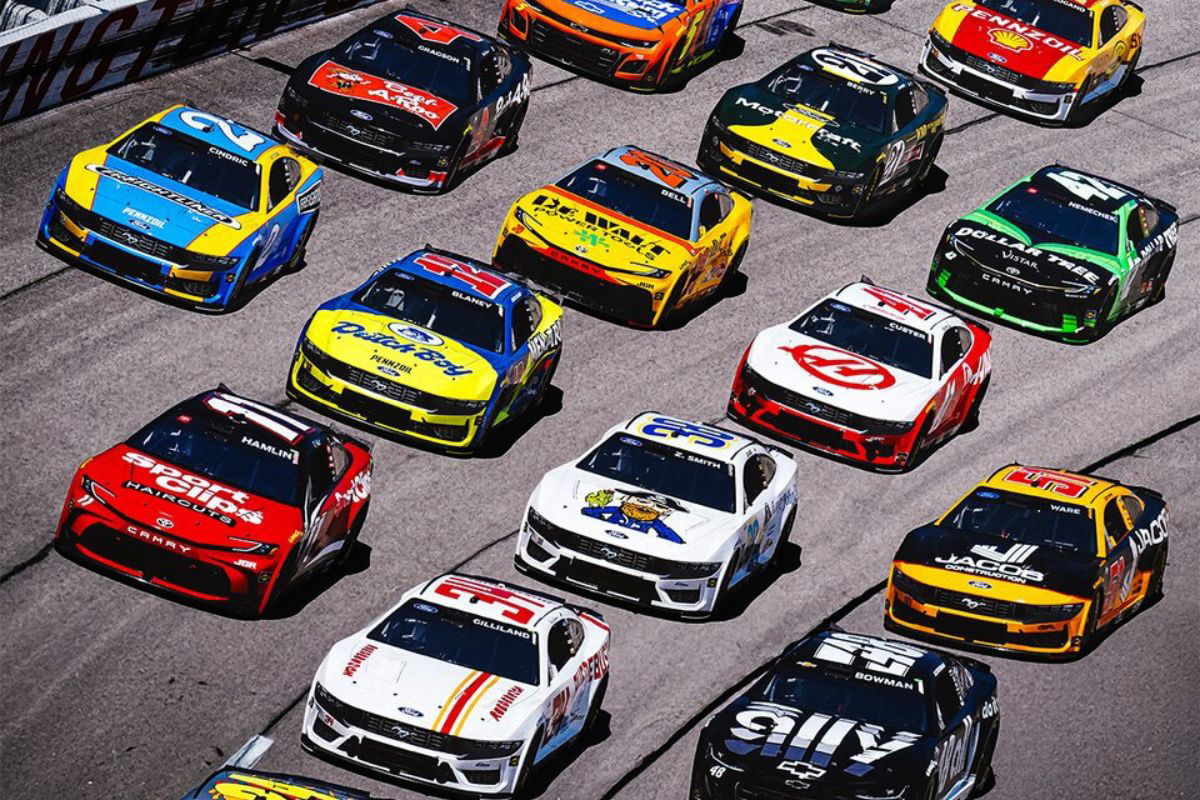

NASCAR might be at its all-time high, but an apparent conflict has arisen. It is a conflict of interest between the drivers and the governing body of the sport. From the confusion around the Open Exemption Provisional to ongoing debates about track limits and eyebrow-raising caution calls, the garage has become a pressure cooker for the drivers. While the rulebook quirks are raising alarms, authorities continue to turn a blind eye to one issue that nearly every driver has been vocal about. While you keep guessing what that issue is, do you know what authorities are focusing on?
Watch What’s Trending Now!
The organization has been busy focusing on grander ambitions. Flashy venue changes, overseas rumors, and marketing-friendly spectacles that look good on paper. They are taking the sport international, and with every passing day of the 2025 season, things are becoming clearer. But now there is a 2026 surprise revelation! And with that, some are wondering: Will NASCAR finally listen to it’s drivers, or will it continue with its tasks?
NASCAR’s global push faces domestic backlash
Looks like NASCAR is not in a hurry to make changes to the sport anytime soon. The only thing they are looking at right now is the global expansion. NASCAR’s decision to race in Mexico City in 2025 marks a significant step in its international expansion strategy. The June 15 event at Autódromo Hermanos Rodríguez will be the first points-paying Cup Series race held outside the U.S. in the modern era, which is sure to get eyes on the sport. This is not just a step, but a part of a broader vision of exploring races in Europe and the Middle East soon. While the step is historic, the two largest factions in the sport are quite unhappy about their unheard plea.
Drivers and fans argue that the sport should prioritize addressing domestic concerns, such as increasing horsepower and refining race regulations. However, NASCAR Chief Racing Development Officer John Probst has cited cost implications as a barrier to adding horsepower. In 2023, Probst said to NBC Sports, “I think there’s a misconception that we could take the existing engines and just throw 200 horsepower in it. We do have multiple-race engines today that we have to keep in mind. (More horsepower) is something that we are actively discussing, but, obviously, we don’t do that in a vacuum. We do that with the engine builders.” In clearer words, these modifications would inevitably escalate expenses for teams. The juxtaposition of NASCAR’s reluctance to invest in domestic car enhancements against its commitment to costly international ventures has led to accusations of a double standard. But while this is vague, a veteran team owner is making headlines for a logical approach to the outrage. Is his answer any different?
The Clash was rumored to potentially head international next season with Brazil mentioned as one idea, but Ben Kennedy said today that “more than likely” it will stay in the U.S. for 2026. https://t.co/0zHpfr9zqR
— Kelly Crandall (@KellyCrandall) May 6, 2025
Doug Yates, CEO of Roush-Yates Engines, the manufacturer of Ford Performance engines, said, “If we were to increase the power from 670 horsepower to about 750 horsepower, that probably wouldn’t be much of a change for us today. But, to go back to those 900 horsepower engines, that would be quite the project and would definitely decrease the life of the engine.” Oh! Now it all makes sense! The newer generation of cars is not built for power, they are built for longevity. Yates knows that this might be too much to ask from NASCAR. So, he has a suggestion of his own.
While the complete makeover to the car’s power is impractical, Yates wants NASCAR to try it in already exciting races. He said, “But I would like to see them be open-minded and try some things, and it’d be nice to see what that looked like, especially on short tracks.” That’s good advice, but hold that thought. With chaos in every turn, will the increasing power of cars on short tracks lead to more disaster if costs are the issue?
And that’s exactly what critics are questioning! How are funds available for global expansion but not for improving the racing experience at home? This sentiment is echoed by both fans and industry veterans who feel that the core aspects of the sport are being neglected. In response to the growing dissent, NASCAR has announced that the pre-season Clash event will remain in the United States for 2026. Earlier, there were rumors of it taking place in Brazil.
Ben Kennedy, NASCAR’s Executive Vice President and Chief Racing Development Officer, stated, “It’s more than likely it will stay domestic for 2026.” However, he also emphasized that international events are not off the table for the future. This development raises a pivotal question. Is NASCAR’s decision to keep the Clash domestic in 2026 a genuine effort to address domestic concerns?
Is NASCAR’s global gamble a response to declining domestic interest?
NASCAR has long been celebrated as an all-American sport, deeply rooted in Southern traditions and fueled by roaring V8 engines. However, recent years have seen a noticeable decline in its domestic popularity. The 2023 Cup Series season averaged 2.86 million viewers. Similarly, the 2024 Cup Series season averaged 2.87 million viewers. Hardly any growth to show for!
NASCAR’s push for global expansion is driven by a desire to grow its fan base, attract new sponsors, and secure a stronger future for the sport. As the 2025 season unfolds, NASCAR is actively adding international races to its calendar. The aim is to make NASCAR a worldwide phenomenon, not just an American tradition.
This strategy mirrors moves by other major sports leagues, like the NFL and Formula One, which have found success in international markets. By staging races in new countries and establishing localized series, such as NASCAR Mexico, NASCAR Canada, the Euro Series, and the new NASCAR Brasil Series, NASCAR is cultivating local talent and engaging new fans. These efforts are supported by new media rights deals and partnerships to increase international viewership and fan engagement.
Expanding globally also helps NASCAR attract new manufacturers and private investment. This further strengthens the sport’s financial foundation. Executives like Chad Seigler emphasize building local infrastructure and stories, ensuring that international growth is sustainable and meaningful. Recent successes, such as the Garage 56 entry at Le Mans, have boosted NASCAR’s global profile and opened doors for further expansion.
Ultimately, NASCAR’s global push is about future-proofing the sport. They are broadening their reach, diversifying their audience, and ensuring their continued relevance in a rapidly changing world of motorsports. What do you think? Should NASCAR go global first, or fix the horsepower issue and focus on its domestic audience?








